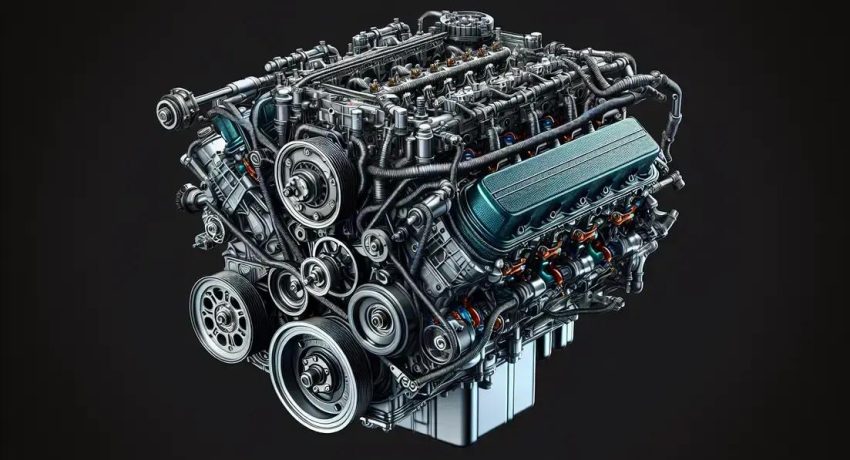Engine knocking is caused by premature ignition of the fuel mixture due to factors like low-quality fuel, improper timing, and carbon buildup, which can lead to serious engine damage if not addressed promptly.
What causes engine knocking? This issue can lead to serious engine trouble if not addressed. Let’s dive into the reasons behind it and how you can prevent it from becoming a bigger problem.
Table of Contents
ToggleUnderstanding the causes of engine knocking

Engine knocking is a problem that occurs when fuel combustion in the engine cylinders happens at the wrong time. This can lead to a series of damaging effects if not addressed. One of the primary causes of engine knocking is the use of low-quality fuel that does not ignite properly, causing premature detonation.
Types of Engine Knocking
There are generally two types of engine knocking: detonation knocking and pinging. Detonation knocking occurs when the air-fuel mixture explodes instead of burning smoothly. Pinging, on the other hand, is a less severe type of knocking that is often heard during acceleration.
Other Contributing Factors
In addition to low-quality fuel, there are several other factors that can contribute to engine knocking. For instance, a lack of proper engine timing can cause the engine to fire too early. Additionally, carbon buildup within the engine can lead to higher compression ratios, increasing the likelihood of knocking.
Using an incorrect octane rating can also lead to knocking. Higher performance engines often require premium fuel to operate correctly. Using regular fuel in these engines can cause issues like knocking.
Signs of Engine Knocking
Recognizing the signs of engine knocking is crucial for preventing damage. Listen for unusual noises coming from the engine, such as a metallic sound or a series of rattling noises. Pay attention to any decrease in performance or fuel efficiency, as these could also indicate a knocking problem.
How to fix engine knocking issues

If you are experiencing engine knocking, it’s essential to address it quickly to prevent further damage to your vehicle. There are several strategies you can implement to fix engine knocking issues effectively.
Using the Right Fuel
Ensure you are using the correct octane rating for your engine. High-performance engines typically require premium fuel. Using a lower octane fuel can cause knocking. Switching to a higher octane can often resolve the issue quickly.
Regular Maintenance
Regularly servicing your vehicle is crucial. Change the oil and filter as recommended by the manufacturer. Engine oil helps lubricate the internal parts, reducing friction that can lead to knocking.
Checking Ignition Timing
Improper ignition timing can also cause engine knocking. Have a mechanic check your timing and make adjustments if necessary. Proper timing ensures that the fuel-air mixture ignites at the right moment for optimal performance.
Removing Carbon Buildup
Carbon deposits can build up in the combustion chamber over time, raising compression and potentially causing knocking. Using a fuel additive designed to clean the engine or having a professional carbon cleaning service can help.
Inspecting and Replacing Spark Plugs
Worn or faulty spark plugs can contribute to engine knocking. Inspect them regularly and replace any that are damaged. Using quality spark plugs can ensure proper ignition, reducing the chance of knocking.
In conclusion, addressing engine knocking is crucial for your vehicle’s health
By using the right fuel and conducting regular maintenance, you can significantly reduce the chances of engine knocking. Checking ignition timing, removing carbon buildup, and inspecting spark plugs are effective steps to resolve this issue.
Staying proactive about your engine’s needs will not only improve performance but also extend its lifespan. Remember, if knocking persists, consulting a professional mechanic is always a wise choice.
Taking action early can save you time and money in the long run!
FAQ – Frequently Asked Questions about Engine Knocking
What causes engine knocking?
Engine knocking is caused by premature fuel combustion, which can result from low-quality fuel, improper ignition timing, or carbon buildup.
How can I prevent engine knocking?
You can prevent engine knocking by using the correct octane fuel, maintaining regular vehicle check-ups, and ensuring proper ignition timing.
What should I do if I hear knocking noises from my engine?
If you hear knocking, it’s important to address it quickly. Check your fuel quality and consider getting your vehicle inspected by a mechanic.
Can low-quality fuel cause engine knocking?
Yes, using low-quality fuel can lead to improper combustion and increase the chances of engine knocking.
Is engine knocking serious?
Yes, if left unchecked, engine knocking can lead to significant engine damage, so it’s important to take action if you notice it.






